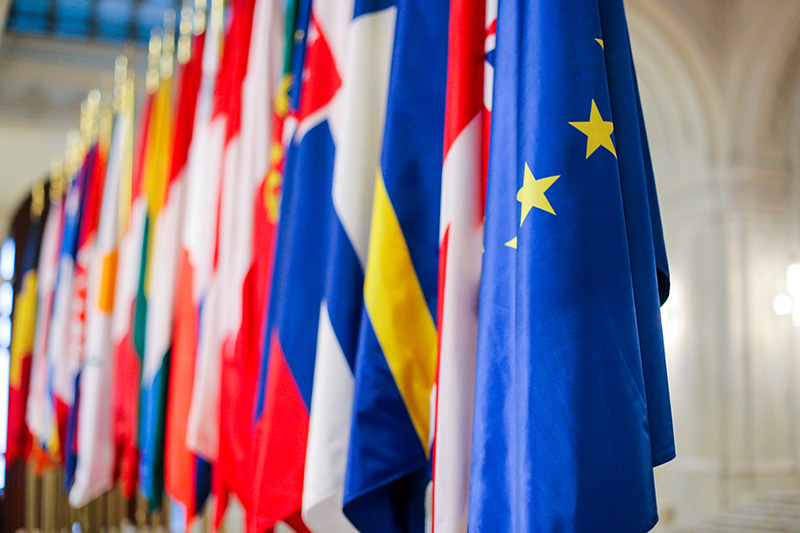International Collaboration
International Collaboration in Research and Development
International collaboration in nuclear waste research and in the development of final disposal technologies has been, and continues to be, of vital importance to SKB. Some partnerships aim to establish international recommendations, while others are more operational in nature, focusing on the development of shared data, methodologies, and tools. Specialists from different countries meet and form expert networks to exchange ideas, share data, and jointly develop models and tools—an approach that is significantly more efficient than if each country were to conduct research independently for their own disposal solutions. Peer review of each other’s research also adds an extra layer of quality to our research programmes.
The majority of nuclear waste research takes place at the national level. Some research is conducted bilaterally, directly between waste management organisations or between regulatory authorities and/or their technical support organisations. In addition, research and knowledge exchange also occur within international bodies such as the IAEA, the OECD/NEA, and the EU.
- Regarding bilateral cooperation, SKB has had an extended partnership with Posiva since 2001, defined in five-year periods. The current focus areas include the canister, buffer, production, and safety assessment.
- The IAEA and the OECD/NEA produce state-of-the-art reports and organize conferences. The OECD/NEA involves all countries with well-developed nuclear waste programs, while the IAEA is more focused on providing guidance to countries with less developed programs.
- The EU’s research programmes aim to support nuclear waste research in Europe through direct funding. The goal is to benefit both advanced and less developed nuclear waste programmes, as well as both waste management organisations and the technical support bodies of regulatory authorities. The projects are co-funded—approximately half by the European Commission and half by the participating entities. In the area of nuclear waste, two major projects are currently ongoing: EURAD and PREDIS.
EURAD focuses primarily on final disposal, as well as waste management strategies and knowledge preservation. PREDIS addresses treatment methods and other so-called pre-disposal activities. Both projects are scheduled to conclude in mid-2024 and are planned to merge into a single project, EURAD-2, which will run until 2029.
Last review: June 18, 2025
Last review: June 18, 2025
